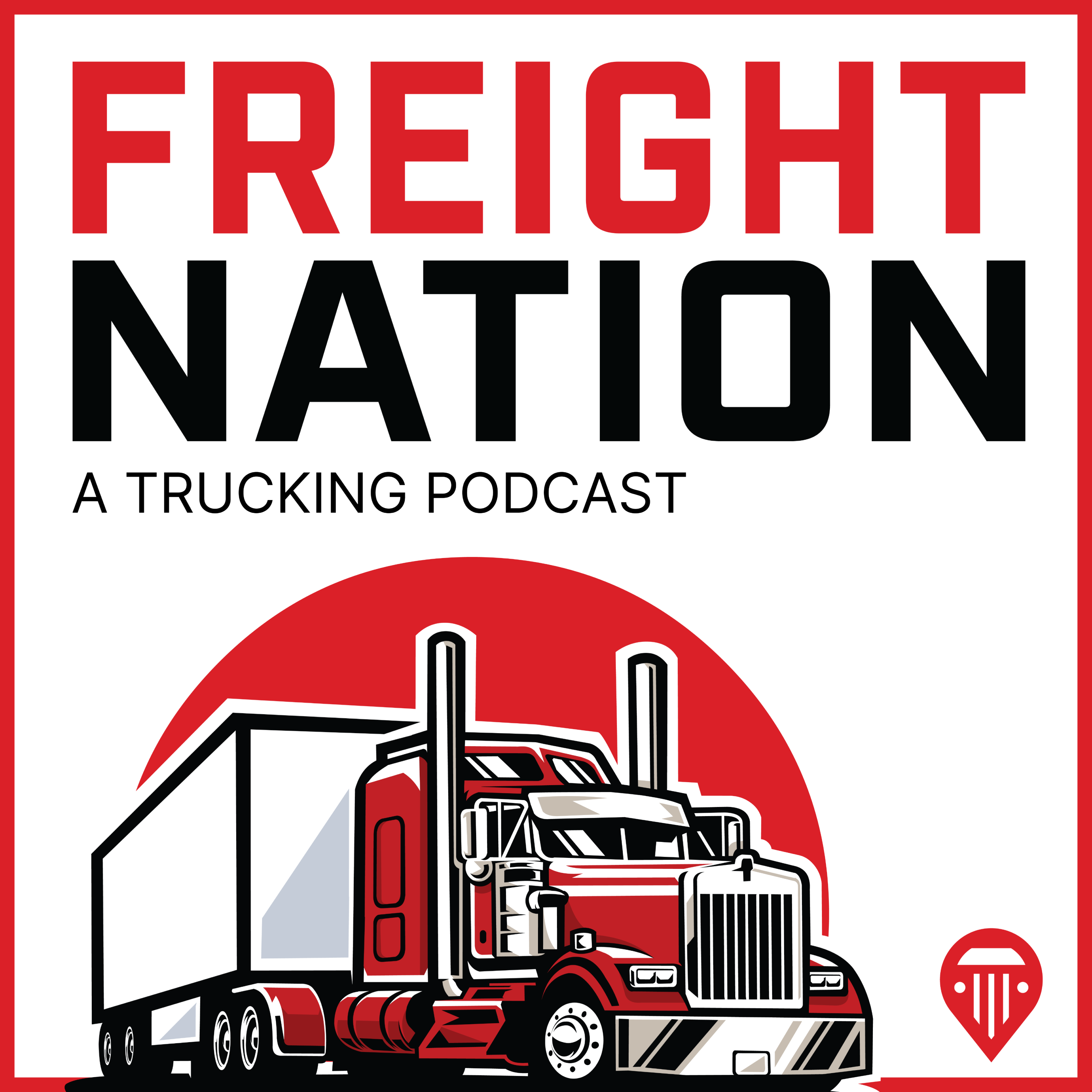
Logistics at a Crossroads
Where freight meets real life.
Hosted by Gia — logistics veteran, cancer survivor, and truth-teller — “Logistics at a Crossroads” explores the industry, identity, and the grit it takes to keep showing up. Freight. Feelings. No filter.
Logistics at a Crossroads
Episode 20: Rejected, Redefined
🎧 Episode 20: Rejected, Redefined
📍 Systems We Survive – Part 3
This episode takes you straight to the yard, the vessel call, and the long hours that don’t show up in leadership reports. Gia recounts a relentless week — 65 hours of pure endurance — and then asks the hard question:
Why are companies so quick to let that kind of experience walk away?
There’s no burnout cliché here — just exhaustion, and the quiet danger of losing institutional knowledge without a trace.
📌 If you’ve ever been told “you’re invaluable” but treated like you’re replaceable — this one’s for you.
🎵 Intro music: Marchando
🎵 Outro music: NWhere
🎙️ Holding the Line: A Logistics at a Crossroads Podcast
🎧 New episodes every week.
Follow Logistics at a Crossroads on your favorite podcast platform.
📬 Want to connect?
Find me on LinkedIn: linkedin.com/in/reginahunter
Visit the blog: giakat.blogspot.com
[🎶 Intro music fades in – “Marchando-March” ]
Gia (Host):
Hey everyone — welcome back to Holding the Line: A Logistics at a Crossroads Podcast.
I’m Gia, your host — and today, we’re opening the door on Volume 20:
Rejected, Redefined.
Let’s not sugarcoat it — this one’s personal.
In logistics, there’s this unspoken tradition that’s not really a tradition at all.
You don’t always get the sendoff.
No retirement luncheon, no plaque, no formal farewell.
Sometimes, you just... stop getting emails.
Your name’s quietly removed from the schedule.
And there’s a new title floating around that looks suspiciously like the job you used to do.
No one says it outright — but the message is clear:
"Thanks. We’re moving on."
[beat]
Here’s the part that stings:
Experience is being quietly offboarded in this industry — and it’s costing us more than anyone’s calculating.
When you’ve put in 20, 30, 40 years — you don’t just know the job.
You are the job.
You know the ports that delay invoices.
The drivers who actually pick up on the first ring.
The TMS/YMS glitches no one has documented but everyone runs into.
The fact that if a certain customs officer is off on Friday? That shipment’s not clearing up until Tuesday, no matter what.
This kind of knowledge doesn’t live in a Google Doc.
It lives in people. And those people are being quietly pushed aside.
Let’s be real about why.
[slight pause]
It’s age.
Not performance. Not attitude. Not inability to learn.
Just... age.
The perception that older workers are expensive, slow to adapt, and fragile.
But that perception? It’s wrong.
I’ve been in logistics since before “real-time tracking” meant anything.
Back when ETA was a phone call and a gut feeling.
Now? I’m fluent in platforms half my team’s still figuring out.
Magaya, Shipthis, FourKites, Turvo — name it. I’ve trained myself in it.
Not because I had to.
Because I wanted to keep serving. Keep contributing.
That’s what veterans do.
But here’s what they don’t tell you:
It’s not the tech that wears us down.
It’s the culture of disposability.
[short beat]
Let me give you a snapshot of a week I had not too long ago.
Monday started with a 10-hour planner yard shift — followed immediately by a night shift vessel call that stretched another 10 hours, rolling straight into Tuesday’s 10-hour day shift. That’s 30 hours in two days. On-call. In the thick of it.
By the time I walked out Tuesday night, all I wanted was a shower and a bed — and I got both. I slept 15 and a half hours straight. But that sleep came at a cost.
I missed my first real day off — Wednesday disappeared. And Thursday? That was for the adulting.
Homeowner responsibilities.
Being the family pinch-hitter.
Running errands. Preparing meals. Making sure everything was set to survive the next round.
Because Friday came fast — and at 5:30 a.m., I was clocked in again.
That shift? Fifteen hours.
By the time Sunday wrapped up, I was sitting at 65 hours for the week.
That’s not just burnout.
That’s bone-deep exhaustion.
And yet — instead of recognizing that kind of experience, companies are letting it walk out the door.
No documentation.
No knowledge transfer.
No mentorship.
Just silence.
And that’s not only inefficient —
It’s reckless
Because when the system crashes?
When your automated routing goes haywire?
When your “cloud-first” logistics stack gets hacked and your screen goes dark?
Guess who knows how to run ops manually?
The 59-year-old whose first shipment was tracked by landline.
[beat]
Let me paint it clearly:
There’s a quiet offboarding happening.
It’s not malicious. It’s just… lazy.
And in logistics, lazy costs you time, money, and trust.
So to the hiring managers, directors, and supply chain execs —
Ask yourself:
Who do you call when the new hire is panicking at 3 a.m. because a bill of lading doesn’t match?
Who do you ask when the customs code flags incorrectly but no one knows why?
Who’s been troubleshooting systems longer than most employees have been out of college?
You’re not just offboarding people.
You’re offboarding memory.
Context. Strategy. Grit.
And to my fellow veterans —
You’re not outdated. You’re critical.
You’re not “low-energy.” You’re measured.
You’ve been through strikes, mergers, port slowdowns, digitization, and deregulation.
And you’re still here.
You’ve done manual dispatch from paper maps.
You’ve watched barcodes change the game.
You’ve pivoted when logistics got global.
You’ve onboarded AI tools while training the next wave.
That’s not resistance to change — that’s resilience in motion.
[beat]
Here’s what we need:
Structured knowledge transfer.
Mentorship pipelines.
Advisory roles with teeth — not just a title and a folding chair.
Systems that recognize wisdom doesn’t always look like velocity metrics.
And if we don’t change the mindset soon?
We’re not just losing workers.
We’re losing anchors.
And without anchors, operations drift.
[🎶 Outro music fades in – “NWhere)
Gia (closing):
Thanks for spending this time with me on Holding the Line.
If anything I said today made you pause — good. That pause is where change starts.
If you’re an ops leader, ask who you’re not listening to.
If you’re a seasoned worker, speak up — or better yet, document your brilliance.
This industry isn’t just built on innovation.
It’s built on memory.
And memory only matters if we protect it.
I’ll be right here — navigating the crossroads with you.
Until next time, keep showing up, keep holding the line,
and don’t let anyone write you off.
Podcasts we love
Check out these other fine podcasts recommended by us, not an algorithm.

Supply Chain Revolution
Sheri Hinish, SupplyChainQueen
Supply Chain - Unfiltered
Institute for Supply Management®
The Bootstrapper's Guide to Logistics
Nate Shutes
Everything is Logistics
Blythe Brumleve
WHAT THE TRUCK?!?
FreightWaves
Freight Nation: A Trucking Podcast
Truckstop
Logistics Unboxed: Digital Freight
The Advisor W/ Stacey Chillemi
The Happiness Lab with Dr. Laurie Santos
Pushkin Industries
The Wandering One Podcast
The Wandering One Podcast
We Can Do Hard Things
Treat Media and Glennon Doyle